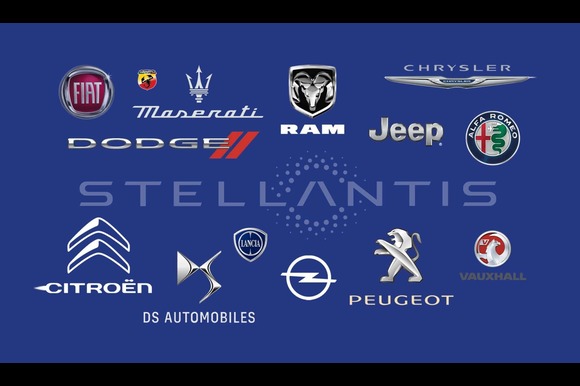Stellantis, the multinational carmaker behind major automotive brands including Vauxhall, Jeep, and Fiat, has reported a €300 million (£259.6 million, $349.2 million) financial hit due to tariffs imposed by US President Donald Trump. The company attributed the loss to disrupted trade flows and a reduction in planned production as a response to the new trade barriers.
Since April, a 25% tariff has been levied on imported vehicles entering the US, a move the Trump administration claimed would bolster domestic car manufacturing. However, industry leaders warn it is causing widespread disruption to global automotive trade and supply chains.
The impact has already prompted some manufacturers, such as Jaguar Land Rover (JLR), to temporarily suspend exports to the US. Stellantis, which owns 14 brands including Alfa Romeo, Maserati, Citroën, Chrysler, and Dodge, said shipments to North America fell by 25% in the three months leading up to June, compared to the same period in 2024. The decline is partly attributed to the effects of the tariffs.
In preliminary figures released for the first half of the year, Stellantis also reported a 10% drop in total sales. The company, which has production facilities in the US, UK, Europe, Canada, Mexico, and South America, forecasted revenues of €74.3 billion and a net loss of €2.3 billion—figures that include the fallout from the tariffs.
Although President Trump has defended the tariffs as a way to boost American manufacturing, he has since partially relaxed them, reducing the levy on foreign car parts after just a month of enforcement.
In May, the UK struck a deal with the White House to lower the tariff rate to 10% on up to 100,000 vehicles annually. This revised rate, while an improvement, still marks a significant increase from the previous tariff of 2.5%.
Negotiations with other nations are ongoing. Trump has recently warned of further tariff increases targeting the European Union and Mexico if those regions retaliate against US trade policies. He has also threatened a 50% tariff on Brazilian exports unless Brazil drops legal action against far-right former president Jair Bolsonaro, a Trump ally under investigation for an alleged coup attempt.
Stellantis, which operates three manufacturing plants in Brazil where it builds Fiat, Jeep, and Citroën vehicles, may also face repercussions from any Brazil-related trade escalation.
The company is not alone in struggling under the weight of Trump’s protectionist measures. JLR, the UK-based automaker, downgraded its profit forecasts in June following a pause in its US exports in April. Shipments resumed only after the UK reached its agreement with the US. Just last week, JLR announced it would cut up to 500 management jobs in the UK, citing continued pressure on sales due to the ongoing tariff challenges.
Stellantis’ warning adds to growing concern that Trump’s aggressive tariff strategy could inflict long-term damage on the global auto industry, even as the administration maintains that the policies serve to protect American economic interests.






